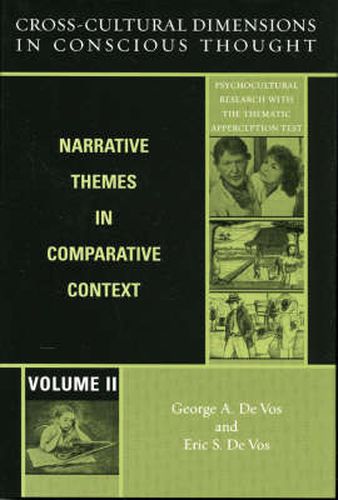Readings Newsletter
Become a Readings Member to make your shopping experience even easier.
Sign in or sign up for free!
You’re not far away from qualifying for FREE standard shipping within Australia
You’ve qualified for FREE standard shipping within Australia
The cart is loading…






Cross-Cultural Dimensions in Conscious Thought represents a major contribution, describing an empirically-validated method for analyzing the thematic content of narratives as a tool for comparative research in Anthropology, Cultural Psychology and Ethnopsychiatry. This second volume in the two volume series presents research conducted in Ireland, Kenya, Japan, the Philippines, Canada, the United States, India, Brazil and Venezuela. This research illustrates, for the cross-cultural researcher, the usefulness of projective techniques as a means for eliciting culturally relevant information from informants. It also exemplifies how the analysis of narrative themes, when it is related to other material obtained in field settings, can reveal meaningful within-group and between-group differences in human experience, and can help us make sense of conscious human experience across a wide range of sociocultural contexts.
$9.00 standard shipping within Australia
FREE standard shipping within Australia for orders over $100.00
Express & International shipping calculated at checkout
Cross-Cultural Dimensions in Conscious Thought represents a major contribution, describing an empirically-validated method for analyzing the thematic content of narratives as a tool for comparative research in Anthropology, Cultural Psychology and Ethnopsychiatry. This second volume in the two volume series presents research conducted in Ireland, Kenya, Japan, the Philippines, Canada, the United States, India, Brazil and Venezuela. This research illustrates, for the cross-cultural researcher, the usefulness of projective techniques as a means for eliciting culturally relevant information from informants. It also exemplifies how the analysis of narrative themes, when it is related to other material obtained in field settings, can reveal meaningful within-group and between-group differences in human experience, and can help us make sense of conscious human experience across a wide range of sociocultural contexts.